Are tiny homes considered mobile homes? No, they are two different type of homes, welcome to the world of tiny homes, a unique and growing trend in modern housing! If you’re one of the many people who have been captivated by the idea of living in a small, minimalist space, you might be wondering: are tiny homes considered mobile homes?
This question has sparked debate among tiny home enthusiasts, legal experts, and housing authorities alike, and the answer may surprise you.
While tiny homes share many similarities with mobile homes, such as their compact size and mobility, they are not necessarily classified as mobile homes under the law.
The distinction between these two types of dwellings is complex and varies depending on factors such as size, mobility, and compliance with local building codes.
So, if you’re curious about the legal status of your tiny home, or simply want to learn more about the fascinating world of tiny living, read on to discover the answer to this intriguing question.
Difference between tiny homes vs mobile homes
| Tiny Homes | Mobile Homes |
| Is build or construct on a fixed foundation | Is build or construct on a frame with wheels |
| Less expensive to build than traditional houses | Less expensive to build than traditional houses |
| Life style, many prefer tiny homes than mobile homes | Life style, many prefer mobile homes than tiny homes |
| Tiny homes require small space compare to mobile homes. | Mobile homes sometime require more space than building a tiny homes. |
Are tiny homes considered mobile homes?
Tiny homes have become a popular housing option in recent years, especially among those looking for a simpler, more affordable lifestyle. However, many people are still confused about whether tiny homes are considered mobile homes or not.
The short answer is that it depends on how the tiny home is built and where it’s located. If the tiny home is built on a permanent foundation and connected to utilities like water and electricity, it’s not considered a mobile home.
Instead, it’s classified as a single-family dwelling, just like any other house. However, if the tiny home is built on a trailer or other mobile platform and can be moved from one location to another, it is considered a mobile home.
In this case, the tiny home is subject to the same regulations and laws as other mobile homes, including zoning restrictions, building codes, and safety requirements.
It’s important to note that just because a tiny home is classified as a mobile home doesn’t necessarily mean it’s a bad thing. In fact, many people choose to build their tiny homes on wheels precisely because they want the flexibility to move around and explore different locations.
However, it’s essential to understand the regulations and laws that come with owning a mobile home to ensure that you’re following all the necessary requirements.
Whether a tiny home is considered a mobile home or not depends on its construction and location. It’s essential to understand the differences and regulations associated with each classification to ensure that you’re making an informed decision when choosing your housing option.
Also useful articles: Tiny House You Can Tow
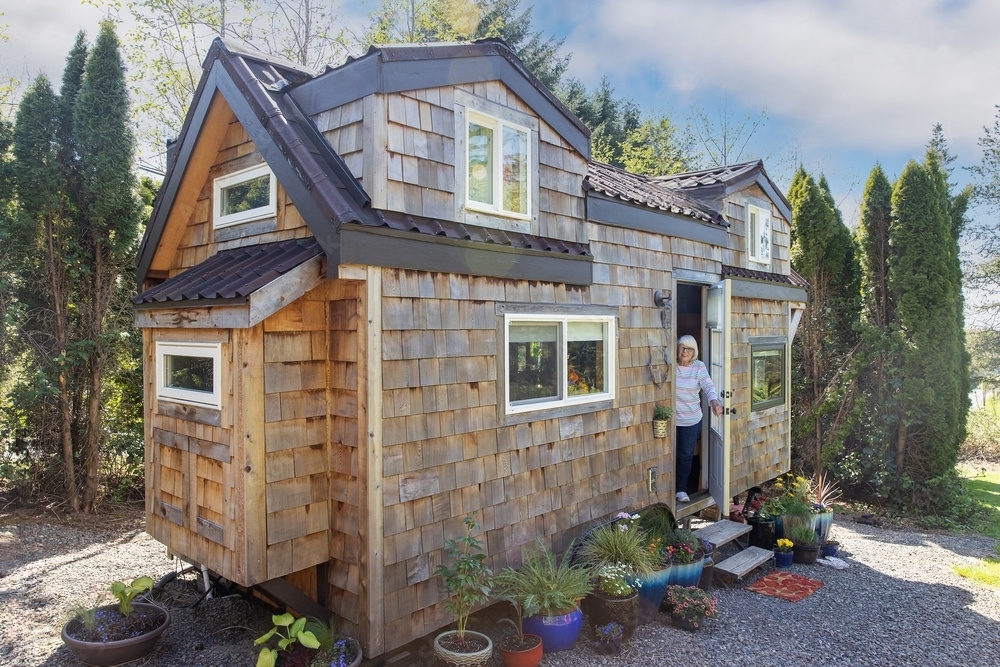
Features of tiny home you need to know
Tiny homes have become increasingly popular over the years as a way to downsize and simplify one’s life. These homes are typically between 100 and 400 square feet and can be found in a variety of styles and designs.
If you are considering building or buying a tiny home, there are several features that you should know about.
First, tiny homes are designed to be space-efficient. This means that every inch of space is used in a practical way. For example, storage is built into every available space, including under the stairs, above cabinets, and in hidden compartments.
Second, tiny homes are often built with sustainable materials and energy-efficient systems. This not only helps reduce the environmental impact but also lowers the cost of living. Many tiny homes are equipped with solar panels, composting toilets, and rainwater collection systems.
Third, tiny homes can be mobile or stationary. Mobile homes are built on a trailer and can be towed to different locations. This allows the homeowner to travel and explore new places without giving up the comforts of home.
Stationary tiny homes, on the other hand, are built on a foundation and can provide a permanent residence. Tiny homes offer a unique and personalized living experience. Each home is designed and built to fit the needs and style of the homeowner.
The limited space forces homeowners to prioritize what is truly important to them, leading to a simplified and intentional lifestyle. Tiny homes are not just small houses, but they offer a unique and personalized living experience that is both space-efficient and environmentally conscious.
Whether you are looking for a mobile or stationary home, tiny homes are a great option for those looking to downsize and simplify their lives.
Also useful articles: Can Tiny Homes Be Built On A Foundation
Top pick
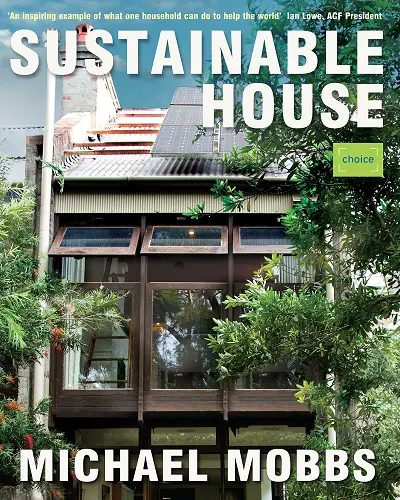
Editor’s choice
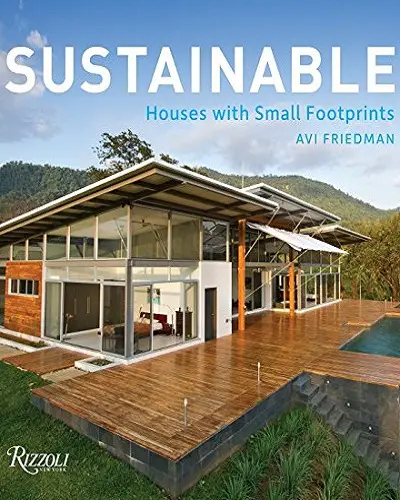
Best value
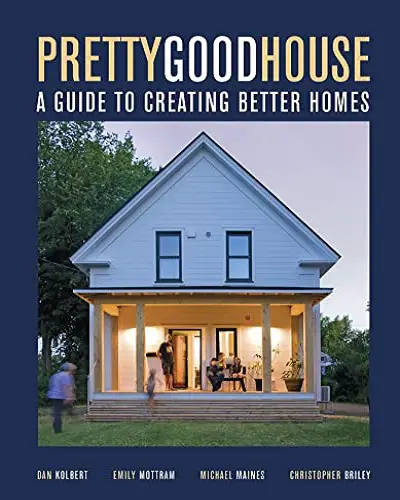
Features of mobile home you need to know
Mobile homes, also known as manufactured homes, are becoming increasingly popular among people who want to own a home without breaking the bank. These homes offer several advantages over traditional homes, including affordability, flexibility, and energy efficiency.
However, before you decide to purchase a mobile home, there are a few features you need to know about. Here are some of the essential features of mobile homes.
- Size: Mobile homes come in various sizes, ranging from single-wide to double-wide or even triple-wide. The size of your home will depend on your family’s needs and the amount of space you require.
- Customization: Mobile homes can be customized to your preferences. You can choose from a variety of floor plans, finishes, and appliances to create a home that fits your lifestyle and budget.
- Energy efficiency: Mobile homes are designed to be energy-efficient, which can save you money on your utility bills. They feature insulated walls, windows, and roofs, as well as energy-efficient heating and cooling systems.
- Durability: Mobile homes are built to last, with sturdy construction and high-quality materials. They can withstand severe weather conditions, such as hurricanes and tornadoes.
- Financing: Mobile homes are typically more affordable than traditional homes, and there are several financing options available. You can finance your mobile home through a mortgage lender, a mobile home dealer, or a personal loan.
Mobile homes offer many advantages over traditional homes, including affordability, flexibility, and energy efficiency. Before you buy a mobile home, it’s important to consider its size, customization options, energy efficiency, durability, and financing options.
With the right mobile home, you can enjoy all the benefits of home ownership without breaking the bank.
Also useful articles: Can Tiny Homes Have Basements?
Cost of buying a tiny house or tiny home cost?
Tiny homes have become a popular alternative to traditional homes, offering a more affordable and sustainable way of living. However, one of the biggest questions for those considering a tiny home is the cost. So, how much does it actually cost to buy a tiny house?
The cost of a tiny house can vary widely depending on several factors, such as the size, materials, and location. On average, a tiny house can range from $20,000 to $100,000 or more.
Smaller, more basic models can be found for as little as $10,000, while larger, more luxurious models can cost well over $150,000.
Other factors that can affect the cost of a tiny house include the level of customization and the type of foundation it is built on. For example, if you want a custom-built tiny house with high-end finishes and appliances, you can expect to pay a premium price.
Similarly, if you want your tiny house to be built on a permanent foundation rather than a trailer, the cost will also increase.
It is also important to consider ongoing expenses, such as utilities and maintenance costs, when determining the overall cost of owning a tiny house. While tiny homes typically have lower energy costs and maintenance expenses, it is still important to budget for these expenses to avoid any surprises down the road.
In conclusion, the cost of buying a tiny house can vary widely depending on several factors. However, with careful planning and budgeting, owning a tiny home can be an affordable and rewarding way to live a more sustainable and minimalist lifestyle.
Also useful articles: Plans For Shipping Container House
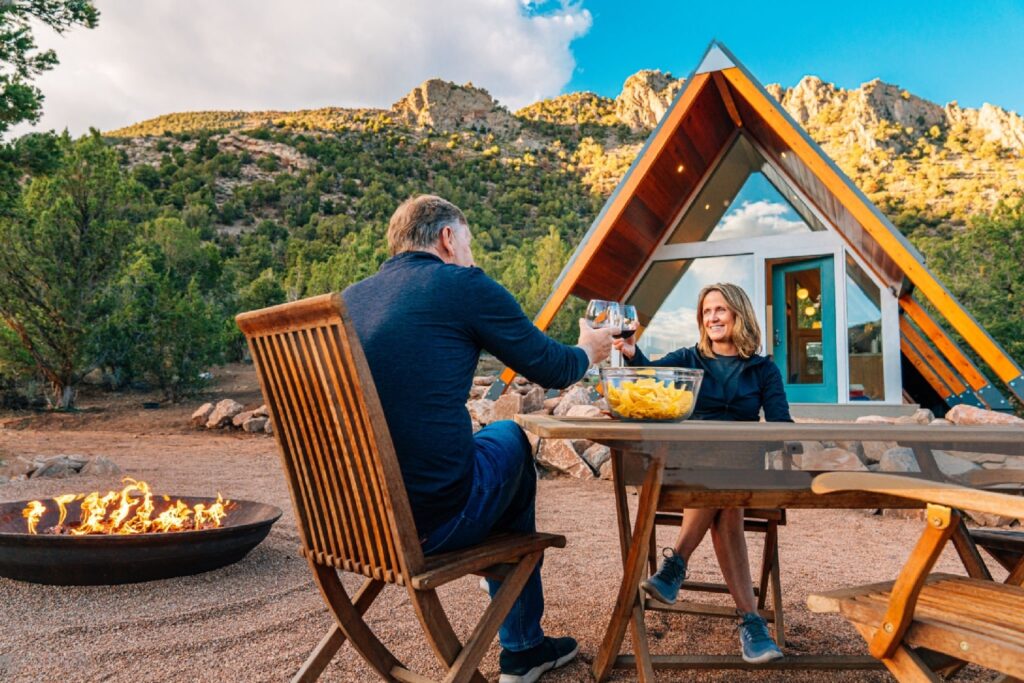
How much will it cost of buy a mobile home?
If you’re considering buying a mobile home, one of the first questions that may come to mind is: how much will it cost? The answer to this question can vary widely depending on a variety of factors, such as the size and age of the home, its location, and any additional features or upgrades.
On the low end, you may be able to find a used mobile home for as little as $10,000-$20,000. However, keep in mind that these homes may require significant repairs or upgrades, and may not be as energy-efficient as newer models.
Additionally, you may need to pay for a plot of land to place the home on, which can add to the overall cost.
Newer mobile homes can range in price from $50,000-$100,000 or more, depending on their size and features. These homes are often built to modern standards and may be more energy-efficient than older models.
Additionally, some mobile home dealerships offer financing options to help make the purchase more affordable. Finally, keep in mind that the cost of a mobile home may also vary depending on where you live.
For example, homes in more expensive areas may cost significantly more than those in more rural or less expensive regions. Before making a purchase, it’s important to do your research and consider all of the factors that may impact the final cost.
Also useful articles: Shipping Container Homes Michigan
Top pick
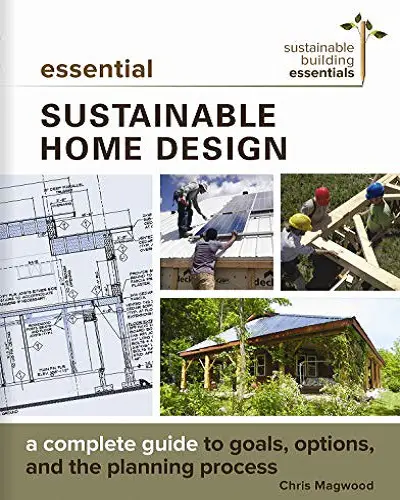
Editor’s choice
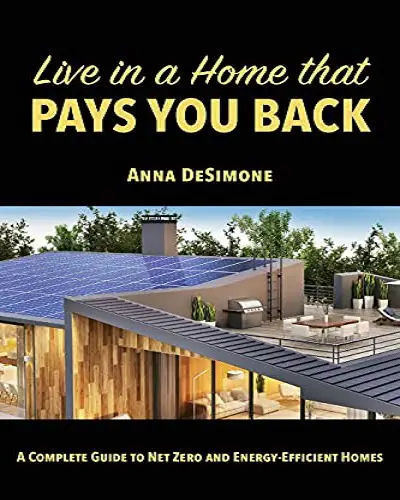
Best value
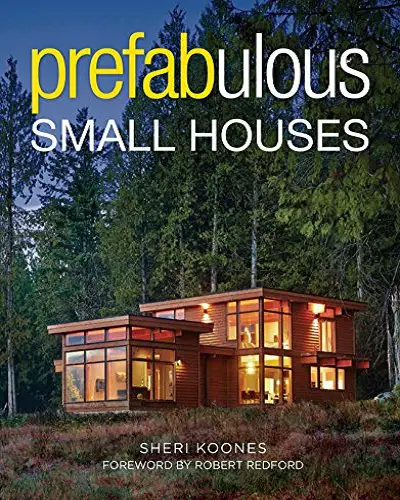
Why tiny houses demands are high?
In recent years, the demand for tiny houses has been on the rise, and it’s not hard to see why. Tiny houses are compact and affordable homes that offer homeowners the chance to live a simpler, more sustainable lifestyle. Here are some reasons why tiny houses are in high demand:
- Affordability: The cost of buying or building a traditional house can be overwhelming for many people. Tiny houses, on the other hand, offer a more affordable alternative. They require fewer materials and are usually much smaller in size, which makes them much more budget-friendly.
- Sustainability: Tiny houses are often designed with sustainability in mind. They are built using eco-friendly materials and often have solar panels to generate their own electricity. This means that tiny house owners can significantly reduce their carbon footprint and live a more environmentally conscious lifestyle.
- Flexibility: Tiny houses are extremely flexible and can be customized to suit the needs and preferences of the homeowner. Whether it’s a cozy cabin in the woods or a modern urban apartment, there’s a tiny house design to suit every taste and lifestyle.
- Minimalism: Tiny houses encourage a minimalist lifestyle, which means that homeowners have to get creative with their storage solutions and living spaces. This can help them to declutter and simplify their lives, which can be incredibly liberating.
Overall, the rise in demand for tiny houses is a reflection of our changing attitudes towards home ownership, sustainability, and minimalism. With their affordability, flexibility, and eco-friendly design, tiny houses are a smart choice for anyone looking to simplify their lives and live more sustainably.
Also useful articles: How Much Is A Tiny House In Georgia
Top best company that manufactured home
Owning a home is a dream come true for many people, and choosing the right company to manufacture your home is an important decision that can have a big impact on your overall satisfaction with your living space.
Whether you’re looking for a modular home or a traditional site-built home, there are many companies out there that specialize in manufacturing homes. In this article, we’ll take a look at some of the top best companies that manufacture homes.
- Clayton Homes – Clayton Homes is one of the largest home manufacturers in the US, offering a wide range of affordable homes that can be customized to fit your specific needs.
- Champion Homes – Champion Homes is another well-known manufacturer that offers a range of affordable, high-quality homes that can be customized to your liking.
- Palm Harbor Homes – Palm Harbor Homes is known for their energy-efficient and eco-friendly homes, making them a popular choice for those who are environmentally conscious.
- Skyline Homes – Skyline Homes offers a variety of different home styles, from traditional ranch-style homes to modern, contemporary designs.
- Fleetwood Homes – Fleetwood Homes has been manufacturing homes for over 60 years and is known for their durable and high-quality construction.
No matter which company you choose, be sure to do your research and choose a manufacturer that has a reputation for quality and customer satisfaction. With the right home manufacturer, you can enjoy your dream home for years to come.
Also useful articles: Can You Use A Shed As A Tiny House?
Why you should consider tiny living as a way of life
The idea of downsizing to a smaller living space may seem daunting, but there are many benefits to tiny living that make it a viable option for anyone looking to simplify their life.
Firstly, tiny living can be much more affordable than traditional housing. With a smaller space, there are lower costs associated with construction, utilities, and maintenance.
Additionally, tiny houses can often be built on wheels or on a trailer, which means they can be moved to different locations, allowing for greater flexibility and lower costs associated with property taxes and rental fees.
Secondly, tiny living promotes sustainability. Smaller spaces require less energy to heat and cool, which means lower carbon emissions and energy bills.
Many tiny homes are also built with eco-friendly materials and feature composting toilets, rainwater harvesting systems, and solar panels, further reducing their environmental impact.
Finally, tiny living promotes a minimalist lifestyle. Living in a smaller space forces you to prioritize and simplify your possessions, which can lead to a more fulfilling and intentional way of living. It can also free up time and money to pursue hobbies, travel, or other passions.
Tiny living offers many benefits, including affordability, sustainability, and a minimalist lifestyle. While it may not be for everyone, it’s certainly worth considering as a way of life.
With a little creativity and ingenuity, a tiny house can become a cozy and comfortable home that reflects your values and priorities.
Also useful articles: How Much Is A Tiny House In Virginia
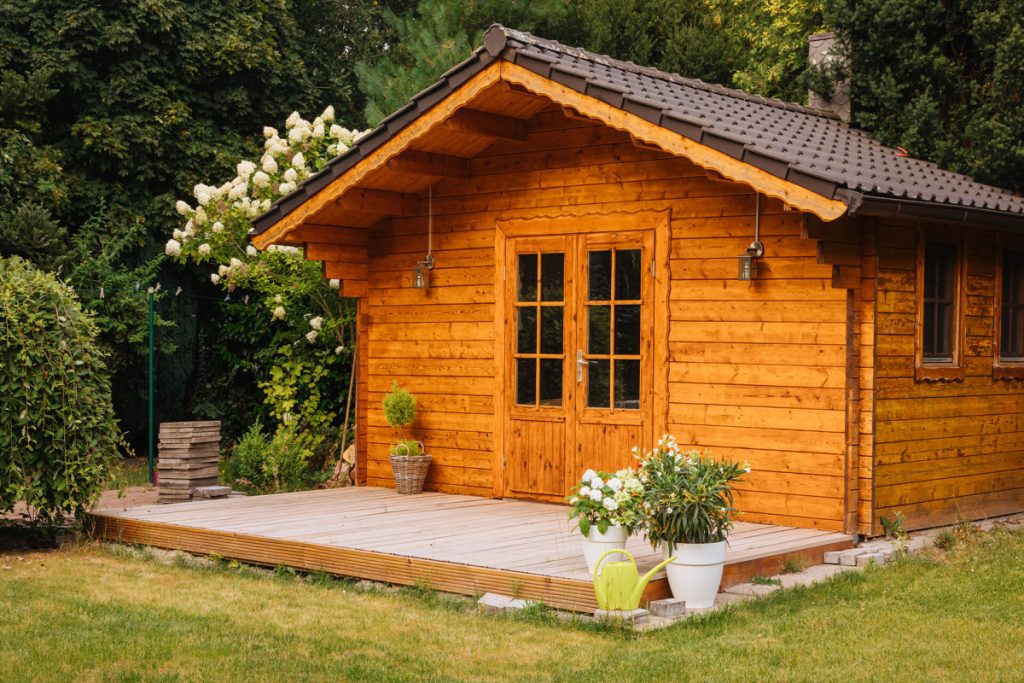
The benefits of having a tiny house
Living in a tiny house can provide a range of benefits that traditional homes simply can’t match. Here are some of the top benefits of having a tiny house.
First, tiny houses are much more affordable than traditional homes. With a smaller footprint and fewer materials required for construction, tiny houses can be built for a fraction of the cost of a traditional home.
This can make home ownership more accessible to people who may not have been able to afford it otherwise.
Second, tiny houses are much more environmentally friendly than traditional homes. With a smaller size comes a smaller carbon footprint, as less energy is required to heat and cool the home.
Additionally, many tiny houses are built using sustainable materials and practices, making them a more eco-friendly option overall.
Third, tiny houses can provide a simpler, more minimalist lifestyle. With less space to fill, homeowners are forced to prioritize their possessions and focus on what truly matters to them. This can lead to a more fulfilling and intentional way of living.
Lastly, tiny houses can provide more flexibility and freedom for homeowners. With a tiny house on wheels, for example, homeowners can easily move their home to different locations and have the freedom to travel and explore new places.
The benefits of having a tiny house are numerous and varied. From affordability and environmental friendliness to a simpler, more intentional way of living, tiny houses offer a unique and appealing alternative to traditional homes.
Also useful articles: Tiny House Living Essentials
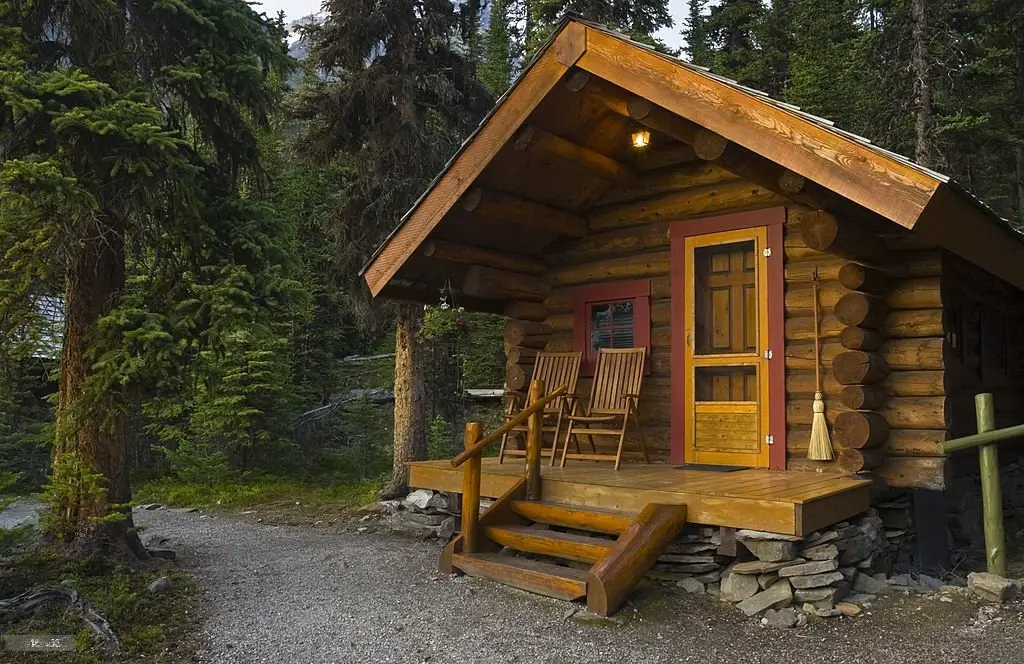
FAQ
1. Is a tiny home an RV or mobile home?
“Is a tiny home considered an RV or a mobile home? This depends on the specific design and construction of the tiny home, as well as local regulations.”
2. Is a tiny house mobile?
“Tiny houses can be mobile or stationary, depending on their design and intended use. Some are built on a trailer for mobility, while others are not.”
3. What is the legal term for a tiny house?
“The legal term for a tiny house can vary depending on factors such as size, location, and intended use. It may be classified as an ADU, RV, or mobile home.”
4. What is the difference between a trailer and a tiny home?
“A trailer is designed to be towed and typically used for transport or temporary accommodation, while a tiny home is a permanent dwelling with a focus on minimalism and functionality.”
Also useful articles: Trailer For Tiny House
Final thought
In conclusion, the question of whether tiny homes are considered mobile homes is a bit complicated. It depends on various factors, including the size, structure, and mobility of the home.
However, in general, tiny homes are not considered mobile homes in the traditional sense. While mobile homes are typically larger and designed to be moved frequently, tiny homes are often smaller and built on a foundation.
Additionally, tiny homes are often designed to be more permanent and have features like solar panels and composting toilets, which are not commonly found in mobile homes.
It is worth noting that regulations around tiny homes can vary greatly depending on the location. Some areas may have strict building codes and zoning laws that make it difficult to build or live in a tiny home.
However, many communities are recognizing the benefits of tiny homes, such as affordability, sustainability, and minimalism, and are starting to adapt their regulations to accommodate this growing trend.
Ultimately, whether you are considering a tiny home or a mobile home, it is essential to do your research and understand the regulations and requirements in your area.
With careful planning and consideration, both tiny homes and mobile homes can provide an excellent alternative to traditional housing and offer a unique and fulfilling lifestyle.
Also useful articles: Building A Shipping Container House

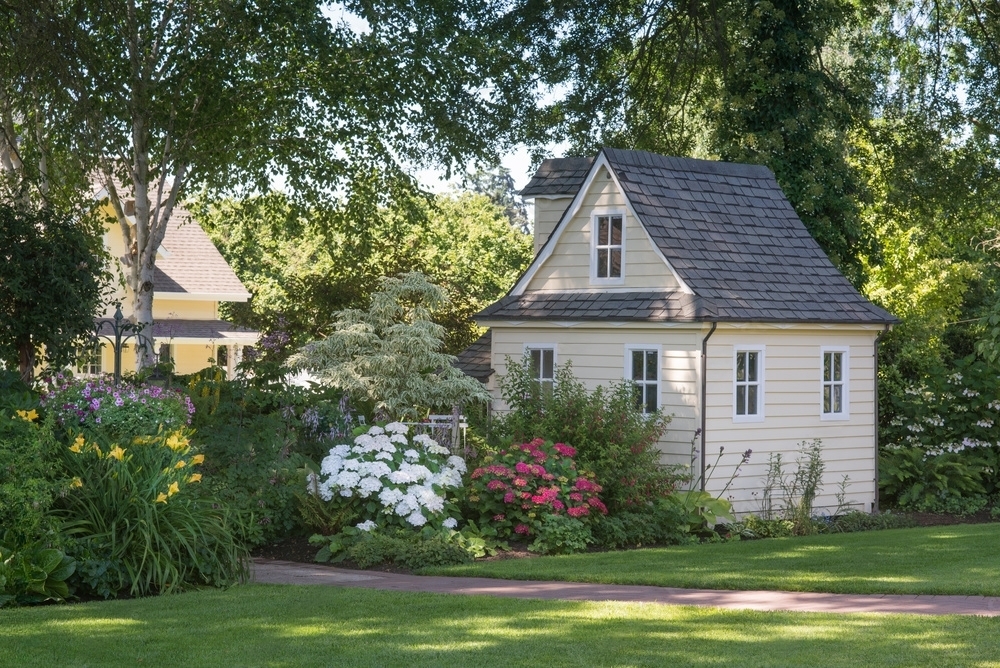
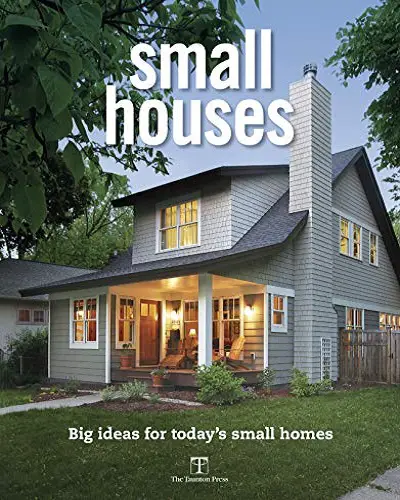
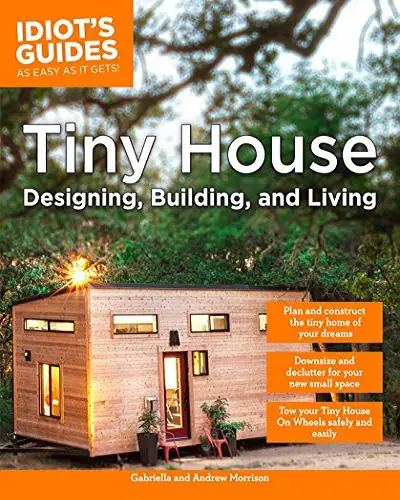
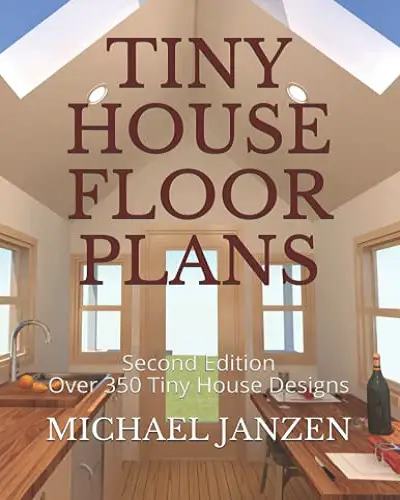
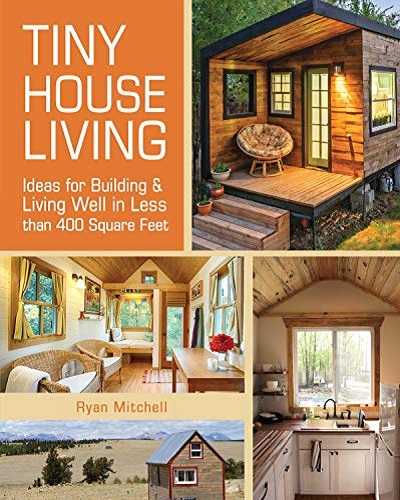
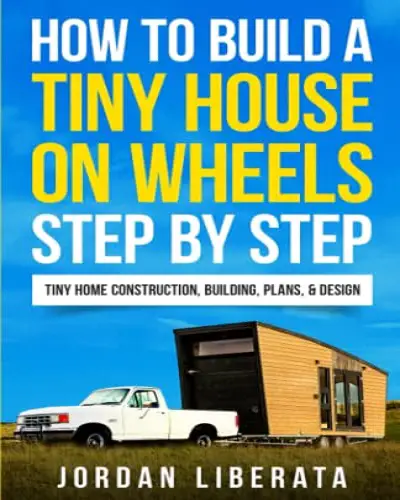
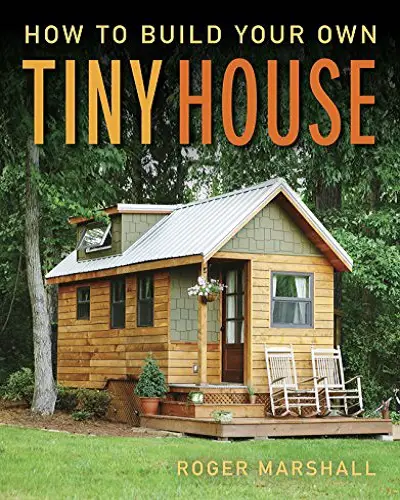
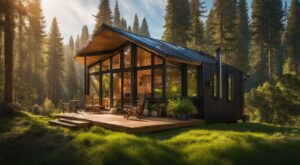
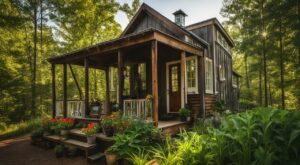
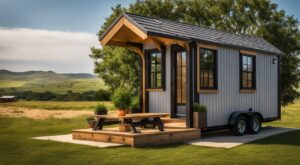
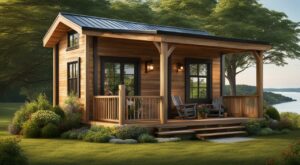
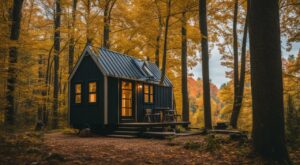
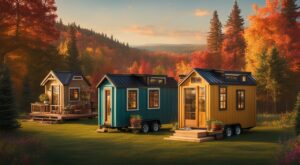
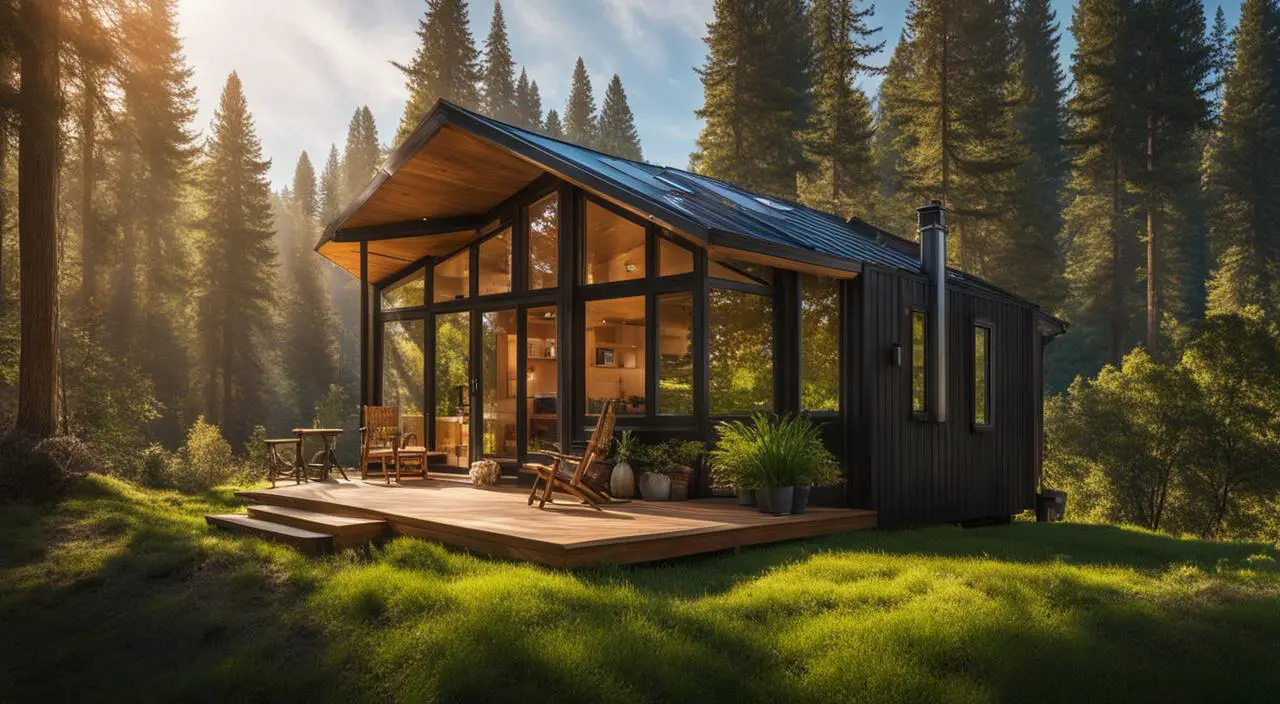
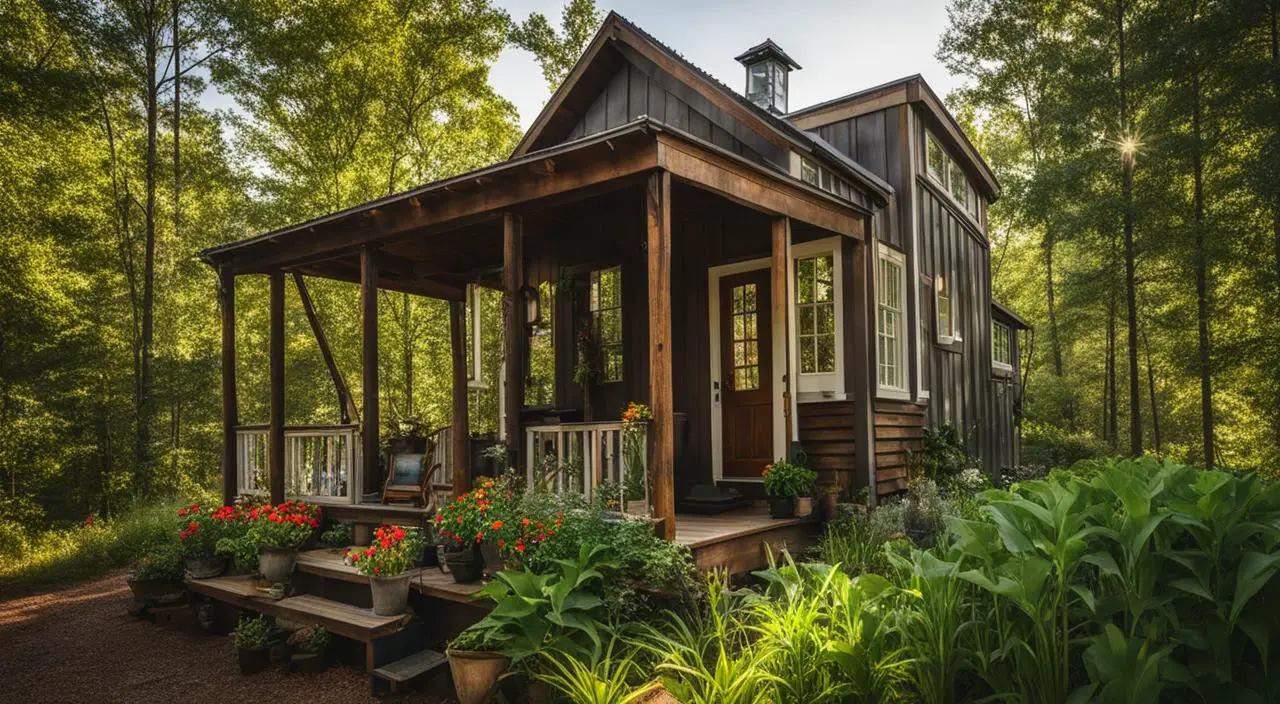
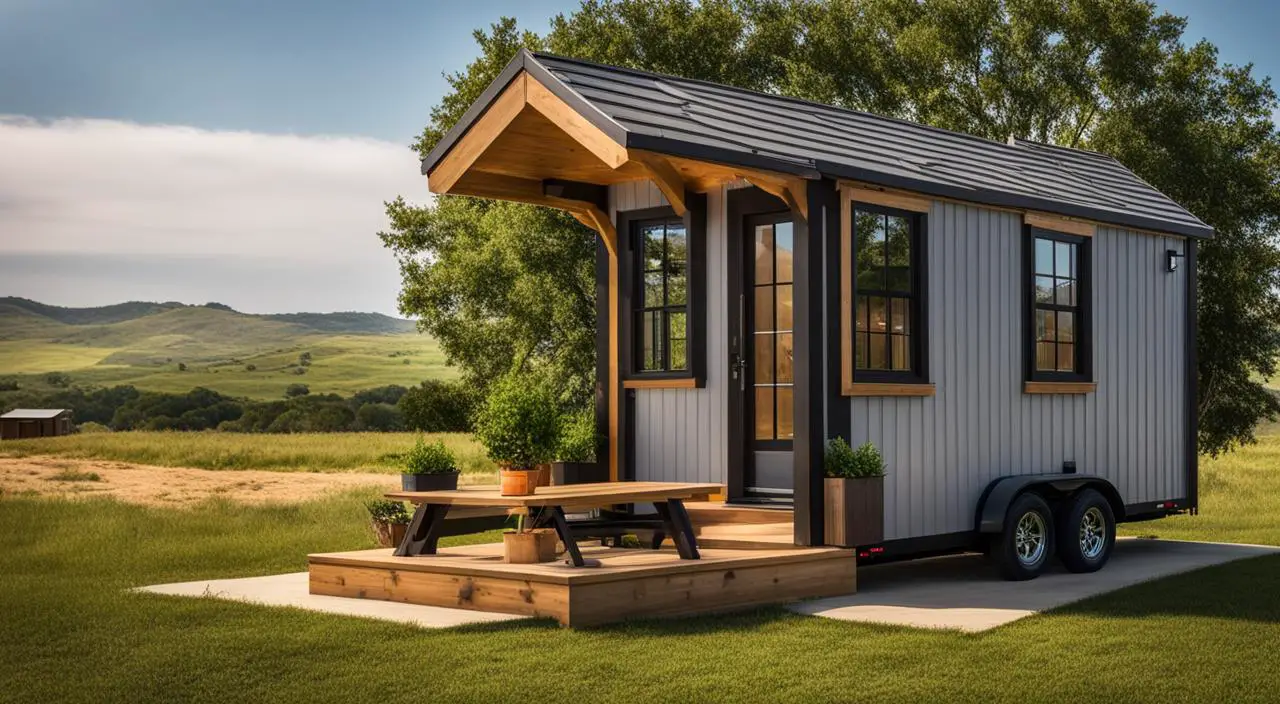
Leave a Reply